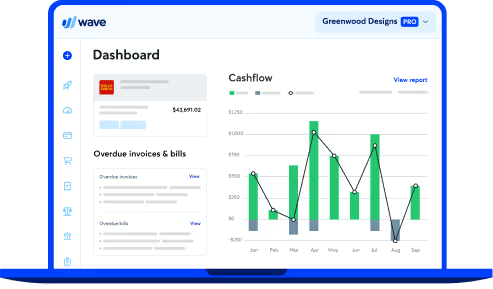
5 FAQs about workers’ compensation
Recently, we announced the addition of workers' compensation for payroll. To build off of this announcement, we asked our insurance partner, AP Intego, to provide a bit more information about workers’ comp by highlighting some of the most frequently asked questions asked by small business owners.
Here are 5 of the most commonly asked questions about how workers’ comp works in the United States, and how it relates to your own business' payroll process:
1) What happens if I don’t have workers’ comp insurance?
This is probably the most frequently asked question by small business owners.
The best answer? Depends.
If your business doesn’t have any employees, then in all 50 states you aren’t required to have a workers’ comp policy. Easy.
In 49 states, having employees means you are required to carry a workers’ comp policy. In many states, having a single employee triggers the requirement, with the threshold slightly higher in many others. Still easy! Simply contact your payroll provider or insurance agent and get a quote. (Texas is the state where a business with employees is not required to have workers’ comp.)
Here’s where things can get sticky: if you’re required to have a workers’ comp policy and you don’t, your business can face significant fines and other penalties. Workers’ comp protects both employers and employees, staving off financial hardships for both parties. This is why states treat workers’ comp benefits and the penalties associated with non-compliance so seriously.
And remember, the intent of workers’ comp is to provide wage replacement and medical benefits to your employees who might be injured or get sick on the job. A lack of coverage can translate into significant unplanned costs, including medical, legal and other expenses.
Workers' comp, flex funds, and other coverages provide recruiting and retention benefits for your business, making your business more attractive to potential new hires compared to your competitors. Remind new hires of the coverage available to them as they're going through their onboarding process.
2) Do I need workers’ comp if I only hire freelancers?
The letter of the law in most states requires you to carry workers’ comp insurance if you have W-2 employees, and does not require it if you don’t. The decision to buy a policy, therefore, seems straightforward. But a workers’ comp policy can be a good idea even if you rely on a workforce comprised of freelancers.
Under certain circumstances, freelancers and contractors—1099 workers—might be granted the same rights and protections as W2 employees. In this case, a workers’ comp policy can protect your business from similar risks that a business with employees would experience.
Like most business people, if you work with a talented contractor you may want to secure the bulk of their available hours. In this scenario, however, the IRS could effectively consider them to be under your “care, custody, and control,” effectively making them your employee and, therefore, due the same workers’ comp protections as an employee. You could be financially exposed if they make a claim against you.
Whether or not you’re exposed is a factor of many variables, most importantly the workers’ comp laws and conventions in your state. Fifty states equals fifty sets of state workers’ comp requirements. While it might be a good idea to carry workers comp even if you only use 1099 labor, it’s always an excellent idea to understand the workers’ comp rules in your state.
Note: at the time of this writing, a bill is moving through the California State Assembly that would reclassify contractors and other gig workers as employees, proving the point that workers’ comp laws change. Staying abreast of them is important for both you and your insurance agent.
3) Do I also need to cover the contractors I hire?
Well, maybe. A workers’ comp policy that covers your contractors can still be a shrewd business move.
Here’s why: If a contractor carries their own liability insurance, there’s a good chance you’d be covered if they got injured while working for you. The primary way to ensure you’re mitigating this risk is by asking your contractors for a certificate of insurance (COI) as a requirement in your decision to hire them. All they have to do is contact their insurance agent and request it, and most contractors expect to be asked by their clients to produce a COI.
Unfortunately, this process doesn’t always work the way it’s intended. In one example, unbeknownst to you, a contractor might have a cancellation notice on their COI for something that happened on a prior job with another client. If they get hurt and make a claim against your business, a State Workers’ Comp Board may not decide in your favor and you may be liable for the contractor’s medical costs and lost wages. Although it may not be required by law in most states, a workers’ comp policy would insulate you from these risks and costs.
4) How do I know if I’m buying the right workers’ comp coverage?
There are three main factors in determining the workers’ comp coverage your business should have, and the premium you’ll pay for the policy. Your insurance agent and/or payroll provider can help you find the right policy for your business.
- The state(s) in which you operate. As mentioned earlier, there are 50 different sets of workers’ comp laws and requirements. These laws in large part define how much coverage you’re required to have based on…
- Your unique business. Insurance is about mitigating risk, and workers’ comp insurance is about mitigating the financial risk to you and your employees getting injured on the job. Determining your coverage and premium, therefore, is also a factor of the type of business you’re in, the nature of the jobs your employees hold, the number of employees you need to insure and your company’s specific, historical risk profile. These factors are analyzed by...
- Insurance carriers. There are a number of insurance companies that provide workers’ comp policies to businesses of all sizes. Whereas they too must operate within the workers’ comp parameters designated by your state, they are independent entities that may quote different premium levels to insure your business. It’s important to note that there are a number of “monopolistic states” (North Dakota, Ohio, Washington, Wyoming) in which independent insurance carriers cannot provide workers’ comp and only the state itself can issue a policy.
So how do you know you’re getting the right coverage? An experienced, licensed insurance agent is prepared to do all of this for you—gather your business information, request a quote from multiple carriers (unless you’re in a monopolistic state), secure a quote and handle the logistics of providing you with a policy. What’s most important is working with an agent that is appointed by many insurance carriers so they can find the best-fit, best-priced coverage for your business.
5) How do I update my workers' comp policy as my business evolves?
Like yours, most businesses see changes in their employee profiles over the term of a workers’ comp policy. Raises, promotions, hirings and job description changes all conspire to affect coverage requirements and premium costs.
With a traditional workers’ comp policy, the process typically begins with a meeting with your insurance agent to estimate the size and nature of your payroll; you’ll need to consider how it may change over the next twelve months. Your agent then works with insurance carriers to estimate and quote your premium.
Once the policy is issued, you’ll either pay the entire premium up-front, or as much as a down payment of 25 percent and be billed for regular installments. At the end of the year, during your annual workers’ comp audit, you’ll be deemed to have either underpaid based on what actually happened to your payroll during the year, pay an additional premium, or you’ll receive a refund if you overpaid. Either way, the upfront premium payment followed by a potential end-of-year payment creates a drag on your cash flow. And that audit? It’s usually complicated and painful.
An easier, flexible and more cash-flow friendly alternative to a traditional policy is a Pay-as-You-Go (PAYG) workers’ comp policy, like the one offered by Wave's small business payroll software. With PAYG, your premium is estimated at the beginning of the year, doesn’t require a down payment and is paid electronically during each payroll run as the year progresses. The result is an accurate premium based on your actual employee profile at any point in time. In other words, changes to your payroll and employee levels are taken into account in real-time and your premium automatically adjusts. It’s literally pay... as you go! At the end of the year, your workers’ comp audit is simple, fast and rarely requires additional payments. And better yet, your cash flow doesn’t experience undue stress as a result of your workers’ comp policy.
Bob Mayo is a Director of Partnership Development with AP Intego. With more than 20 years of experience in the insurance, human capital management and software industries, he has deep experience helping small businesses succeed by using technology to more easily stay compliant.
(and create unique links with checkouts)
*While subscribed to Wave’s Pro Plan, get 2.9% + $0 (Visa, Mastercard, Discover) and 3.4% + $0 (Amex) per transaction for the first 10 transactions of each month of your subscription, then 2.9% + $0.60 (Visa, Mastercard, Discover) and 3.4% + $0.60 (Amex) per transaction. Discover processing is only available to US customers. See full terms and conditions for the US and Canada. See Wave’s Terms of Service for more information.
The information and tips shared on this blog are meant to be used as learning and personal development tools as you launch, run and grow your business. While a good place to start, these articles should not take the place of personalized advice from professionals. As our lawyers would say: “All content on Wave’s blog is intended for informational purposes only. It should not be considered legal or financial advice.” Additionally, Wave is the legal copyright holder of all materials on the blog, and others cannot re-use or publish it without our written consent.


























